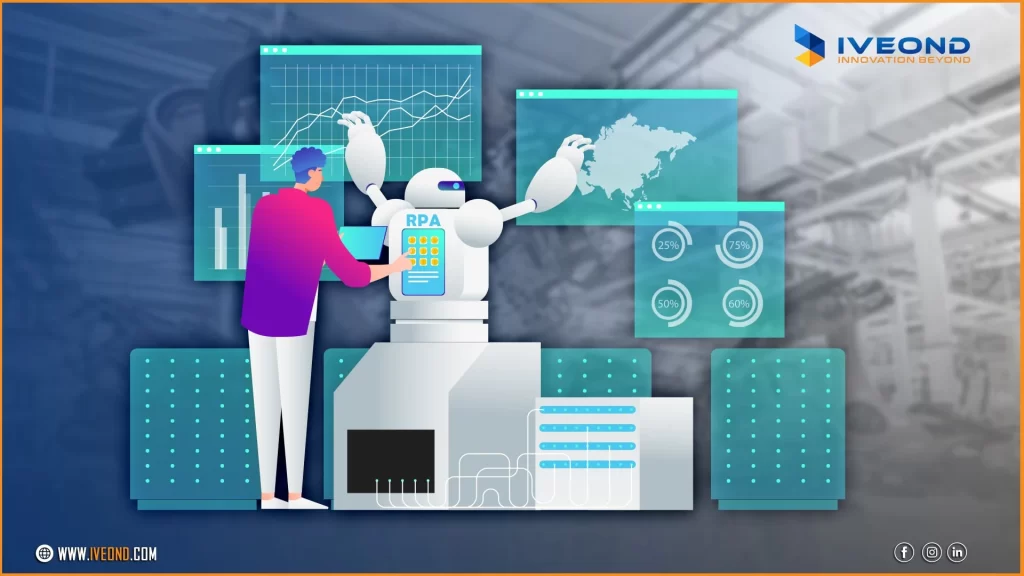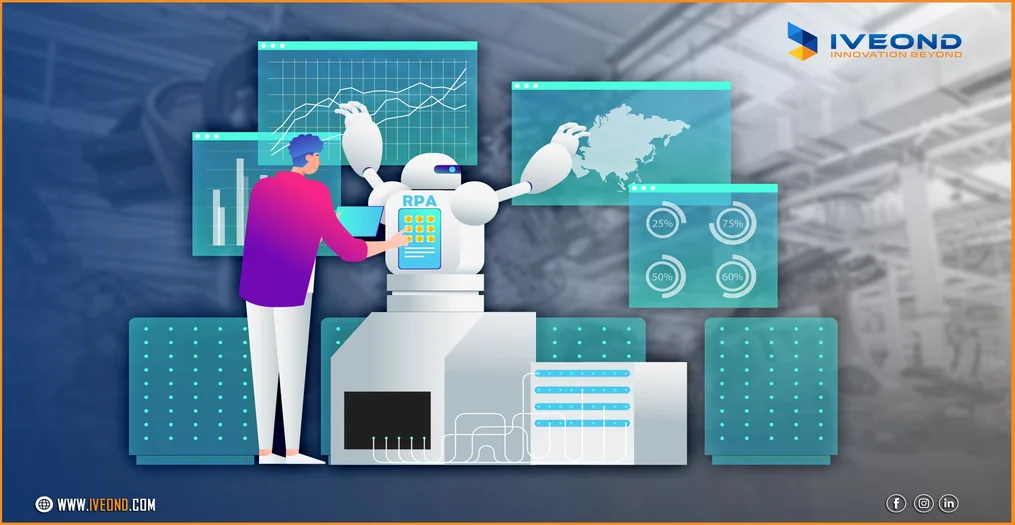Robotics Process Automation in Insurance sector
Robotics Process Automation in Insurance sector
RPA in the Insurance Sector enables faster data processing by linking discrete frameworks, fewer errors, and higher operational effectiveness. Employees can target adding more value to client engagements to reinforce their dependability.

Insurance companies are progressively turning to RPA to lead their digital transformations. Market-driving insurers depend on RPA to automate data entry, repeat tasks and even make workloads. RPA goes further in workflow management to allow companies to use bots to verify data, fill out forms, increase customer service and facilitate transactions. The main goals of the insurance sector are to provide customers with quick, humane help in times of trouble. There are several tedious, manual procedure and legacy systems in the insurance sector that is automated. The client becomes frustrated because of faults and drowsy processing.
IVEOND offers end-to-end RPA solutions for the Insurance sector that are customized to your business requirements. Our RPA specialist will collaborate with you to assess the possibility of automation, develop a scalable plan, and carry out an appropriate RPA solution across your company. We support you in deciding the ideal automation capabilities to give speedy outcomes and push your company forward.
How is RPA transforming the Insurance sector?
Robotics Process Automation (RPA) is transforming the insurance sector by improving the efficiency, accuracy, and speed of various processes. Some of the ways RPA is impacting the industry include:
- Streamlining claims processing: RPA can automate tasks such as data entry, claims triage, and file administration to reduce manual errors and accelerate the claims process.
- Improving underwriting: RPA can automate routine tasks like data collection and analysis to help underwriters make more informed decisions.
- Reducing manual labor: By automating routine, repetitive tasks, RPA can reduce the workload on employees and free up their time for more value-added activities.
- Enhancing customer experience: RPA can help improve the speed and accuracy of processes, leading to a better customer experience.
- Improving compliance: RPA can help ensure that processes are required in compliance with regulatory requirements by reducing manual errors and speeding up the process.
Use Cases for Robotics Process Automation in the Insurance Sector
Insurance companies can apply RPA to a wide range of services, such as:
Sales Automation: RPA can assist with the troublesome and overwhelming insurance sales and distribution task. Some processes that can be automated and developed contain making sales catalogue, sending notifications to specialists, and doing compliance, legitimate, and credit checks.
Claims Processing: RPA allows insurance companies to assemble information from various sources, process the claims accurately, and instantly influence a wide range of rule-based decision-making. Claim management automation systems use NLP and OCR to derive information, input, and check fraudulent claims and claim mistakes. Automating insurance claim handling decreases several manual touchpoints, and therefore businesses can speed up timely payout with a client-driven approach.
Underwriting Process: Manual insurance underwriting includes assembling and analyzing data from several sources to decide and mitigate the risks related to the chosen policy. It is a complex and tedious procedure that can take weeks to finish. By automating functions like pre-underwriting checks, data collection, loss evaluation, and client claim history audit, the process can be smoothed out for time reduction and reduced instances of human error. Automating this complex procedure can significantly reduce expenses and save time for specialists to focus on high-level tasks.
Policy administration: The main benefit of automation in the insurance sector is automatic transactional action observation. Policy administration in the insurance sector includes commanding, quoting, rating, arising, underwriting and restoring. With several such processes, insurance companies frequently need help with an increased client base. Insurance robotics process automation can automate actions like bookkeeping agreements, tax agreements and governance, credit control etc., while navigating various software. This stores your essential time in the whole policy administration process.
Customer Onboarding: RPA Bots can automate various tasks connected with online and offline seeker form filing, file and compliance check and validation, decision approaches and rules/straight-through handling, etc.
Finance and Accounts: RPA can click buttons, carry out clicks and keystrokes, copy/paste, layout autofill, and more efficiently, which is handy for some RPA for insurance use cases. This is especially useful about finance and accounts, however. For instance, RPA bots can take over many daily bank reconciliations. They can also reduce your policy-cost impression and long-term transactional expenses.
Robotics Process Automation (RPA) is a powerful technology transforming the insurance sector by automating routine, repetitive tasks and improving the efficiency, accuracy, and speed of various processes. From policy processing to claims management, underwriting, and customer service, RPA has the potential to revolutionize the way the insurance industry operates. By freeing up employee time, reducing manual errors, and enhancing the customer experience, RPA is poised to play an important role in the future of the insurance sector. While there may be some initial investment and implementation challenges, the long-term benefits of RPA in the insurance sector make it a technology that is well worth exploring for companies looking to improve their operations.

